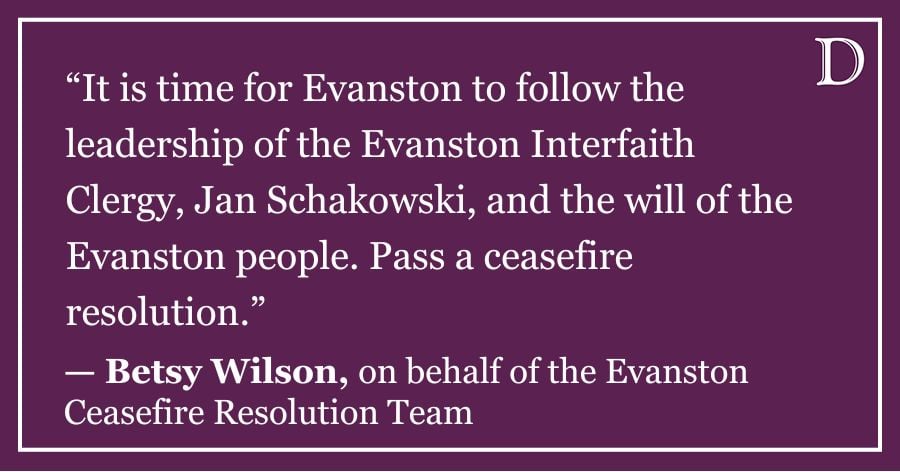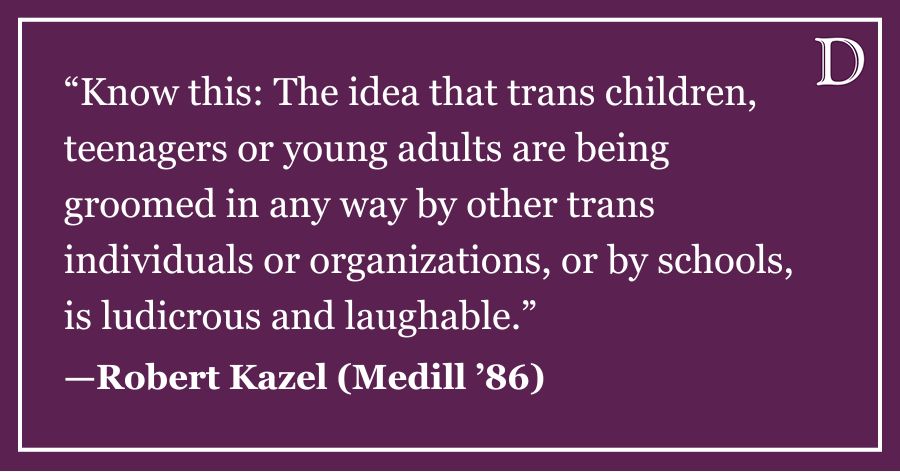
Like many of my fellow Ohioans, I was elated when I heard one of our senators, Rob Portman, announced his support for marriage equality. Being a political nerd in elementary school, I still remember that fateful night in 2004 when Ohio overwhelmingly voted for a constitutional amendment that banned both same-sex marriage and civil unions. In the wake of Portman’s announcement, I celebrated the growing trend that indicates support for marriage equality may one day be as basic of a requirement for politicians as opposition to segregation is today.
Then I read why Senator Portman changed his mind. He did not change his mind because he realized the unfairness of the hierarchy of marriages that the Defense of Marriage Act creates. He was not swayed by a belief in the equality of men and women, or by the recognition of how destabilizing a lack of laws governing some domestic partnerships can be for society, especially children.
Senator Portman changed his mind after his son told him he was gay. Two years ago.
To be fair, one may be able to understand how changing an opinion about one of the most fundamental institutions of our society, especially an opinion rooted in faith, could take a while. Portman consulted religious and fellow politicians as he grappled with this challenge to his worldview. On some level, that is what should happen. We want our public officials to take the time necessary to arrive at the proper conclusions. While I personally believe this issue is extremely obvious and non-negotiable, a significant portion of Americans disagree with me. Therefore I can understand someone taking a significant amount of time to change his or her opinion. I have no issue with the two years.
I do have an issue with the fact that this soul-searching came only after there was an effect on his son, and therefore himself.
In his original op-ed, Portman writes: “Knowing that my son is gay prompted me to consider the issue from another perspective: that of a dad who wants all three of his kids to lead happy, meaningful lives with the people they love, a blessing Jane and I have shared for 26 years.” Yes, this story is an example of how exposing individuals to the lives of those they dismiss may elicit empathy or sympathy, but why did Senator Portman not consider that perspective when he formed his original opinion in opposition to gay marriage? What prevented him from trying to understand how parents of gays or lesbians felt before he became one himself?
Accepting Portman’s vote without recognizing the flaws of his decision-making process only serves to harm the fight for equality. Our political leaders should not determine their positions based solely on how laws will affect them, their family or their friends. They should consider the viewpoints of all people before forming an opinion. Because elected officials act as both representatives of the will of the people and as trustees to determine the public good, they have a moral obligation to willfully ensure they act with regard to all those in society, not just those with whom they share a personal connection. Hence the term “public official.”
If voters allow their representatives to vote based on personal ties, a significant portion of America’s electorate will be left behind. The Senate is currently 95 percent white, 80 percent male, and 99 percent straight, with a median salary that is over 200 percent more than the U.S. median household income. If we assume people associate more within their own demographics, and I believe that is a fair assumption, then racial minorities, the poor and females will be woefully underrepresented. However, if we demand our elected officials to justify their opinions and votes based on what is good for the country or their constituents, then our government can be truly representative of the people.
Some may say this is an irrelevant matter — that as long as the cause for equality receives the votes necessary it does not matter how people change their minds. They are wrong. One cannot accurately predict every issue that will arise during an official’s term, and therefore we cannot vote based on those issues. What the American public can do is elect leaders who make decisions based on how they will affect everyone, not only those closest to them.
Marriage equality is only one step to pure social and legal equality. Currently, 29 states do not protect against employment discrimination based on sexual orientation, 34 do not protect it based on gender identification or expression and 38 have specifically banned same-sex marriage. Senator Portman may now be another voice for the cause, but he should have been before his son’s revelation.
Tyler Dillon is a Weinberg junior. He can be reached at [email protected]. If you would like to respond publicly to this column, send a Letter to the Editor to [email protected].













